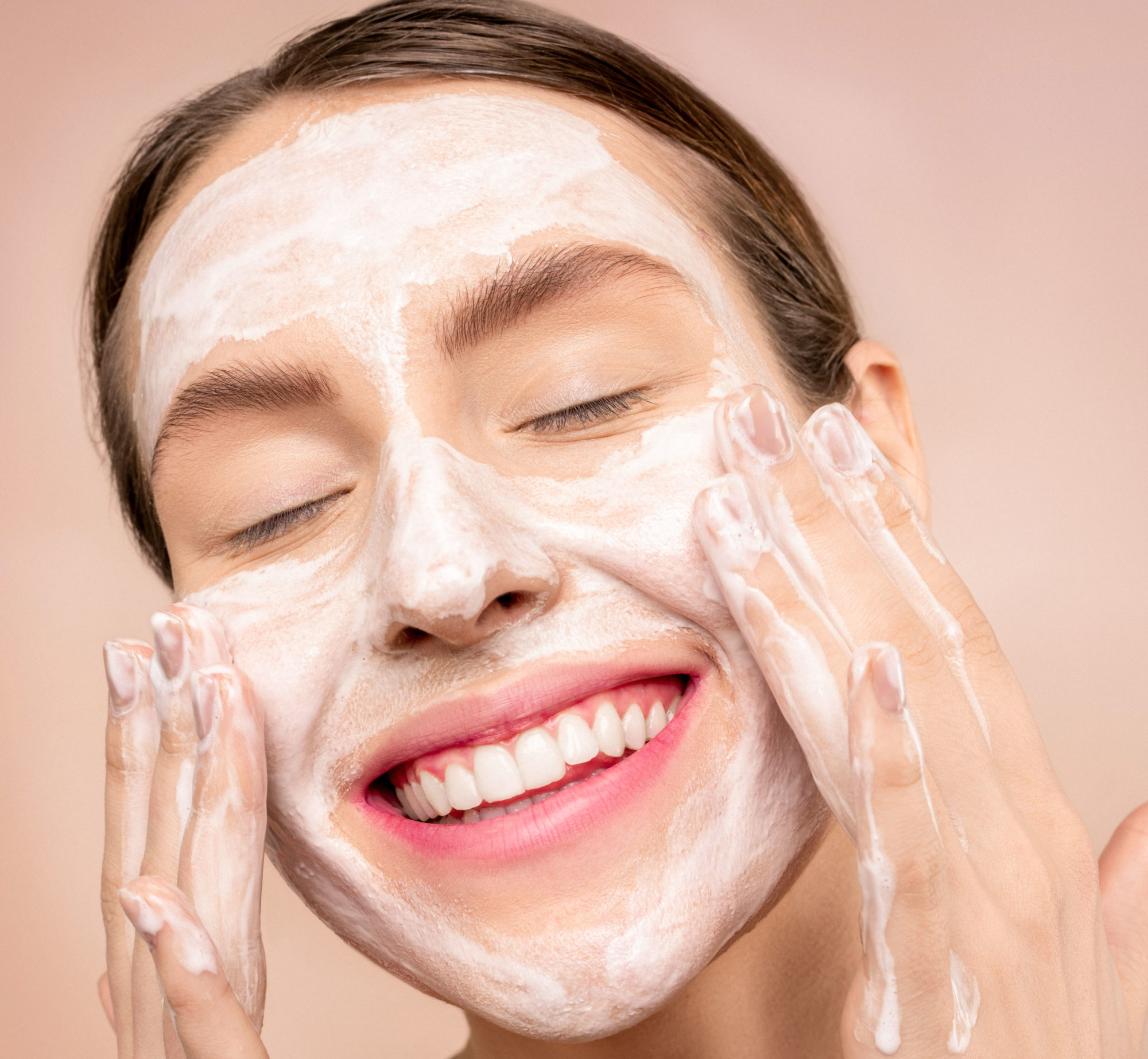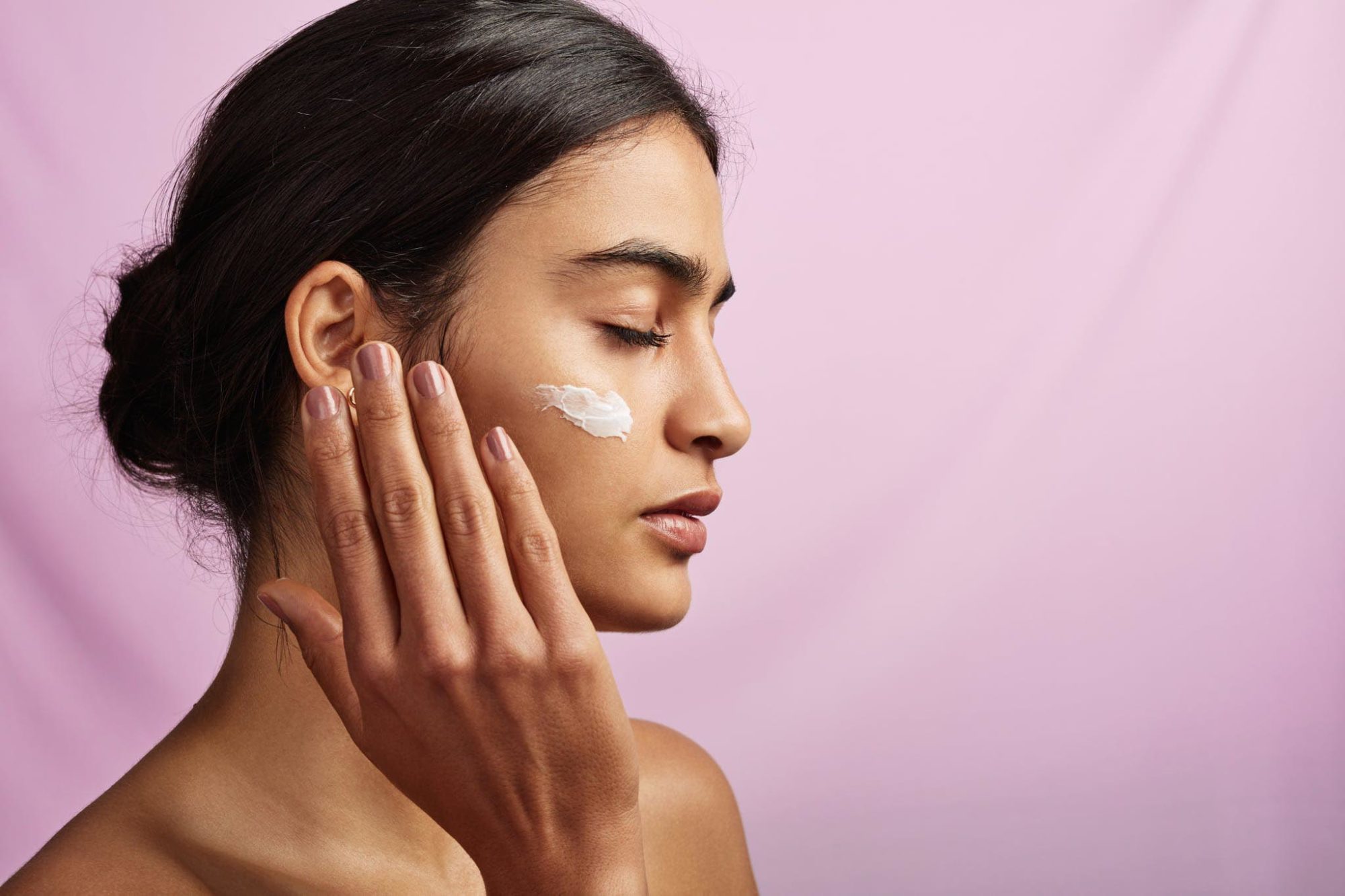Those people who are younger and have never had to face any of the effects of aging firsthand, often have a naive view of getting older– that they will age like fine wine. But in reality, the human body ages more like a fine milk. And this is because, well, we are alive! As the years take their toll, many people find that skin is one of the places that suffers the most as youthful vigor fades away into middle age. Having healthy skin takes a bit of work, and with the wide variety of anti-aging products, treatments, and nutrients that are available both over the counter and through clinical consultations, learning how to take care of your skin can seem like a bit of a daunting task. That’s why we’re here to help! All you need to do is keep a few basic things in mind, and you’ll be on the fast track to younger-looking, healthier skin.
Moisturized Skin is Happy Skin
This might be the simplest tip that there is, and is really the foundation for healthy skin: moisturizing! You must have heard it before, from any variety of sources, and if you haven’t– well, consider this your wakeup call. The skin is the largest organ in the human body, and it is one of the only outwardly-facing ones that there are– because of this, the skin is one of the organs that is most susceptible to damage, and you can think of moisturizer as a shield that can protect and preserve the quality of your skin.
The main use of moisturizers, in a medical sense, is to protect the skin from environmental exposure. This environmental exposure can be present in many ways, from the Sun’s UV rays, to hot showers, to exceedingly cold air– what do these things all have in common? They wear the skin down by causing it to dry out, causing cracks and wrinkles. When we apply moisturizer, it helps to hold water onto the surface of the skin, and draws water deeper into its layers. Hydrated skin looks younger, fuller, and often, more wrinkle-free, but there’s more! The right moisturizer will also serve to help the skin in repairing itself (this is often because it is fortified with certain vitamins), and can also stimulate blood circulation, which is another way to ensure that your skin looks healthy.
Next time you’re shopping for moisturizer, take a look at the ingredients on the back of the label before you apply them to your face. The best anti-aging moisturizers contain vitamins A, B5, C, or E, but it is also important to find a moisturizer that also includes SPF, especially if you live in sunnier climates.

Water, The Liver, & The Skin — A Skincare Cycle
In addition to hydrating the surface of your skin, it is important to hydrate the whole body! Staying hydrated is very important for healthy skin, and, by extension, so is the health of your liver. It is safe to say that having a healthy liver means that your skin will be similarly healthy.
Everything that we eat and drink, whether it is water or rice and beans, is processed in our livers. The liver is the greatest asset the body has to detox it, and it can at times be useful to consider it to be the garbage disposal of the body. After all the nutrients have been used, the liver disposes of the leftovers– and when the liver is dehydrated, it has been found to be significantly less effective in flushing out waste (lack of hydration impacting performance is a trend that can actually be seen all throughout the organs and systems of the human body). When the liver is not working at one-hundred percent, the body often decides to use different routes for detoxification, and one of the first ones is the skin. When the liver isn’t functioning well, people are more likely to experience skin irritation and blemishes like acne.
Stress and Cortisol Management
There’s a decent chance you didn’t expect stress to be on this list. It’s true that when I began researching this topic, I was a bit dubious about stress’ major impact on skin health, but there is no way to refute evidence– and keeping your stress in check has been found to be just as important as moisturizing.
It’s been found to be true that some people break out with rashes or acne when they are stressed. What’s more, people that have rosacea or eczema might find that their condition flares up when they are feeling stressed out. The reality is that there are a number of factors that contribute to this unfortunate correlation. Firstly, stress causes the body to release more cortisol (commonly known as the ‘stress hormone’), which makes the skin oily, clogs the pores, and causes breakouts. The next is that stress can also negatively affect the proteins in the skin, making it harder to retain water and elasticity. Dry skin that is not elastic has a higher chance of developing cracks or wrinkles, and– even worse, perhaps, stress has been found to interrupt a good night’s sleep, which leads to bags under the eyes and often a terrible feeling of sluggishness.
So, how can we reduce stress? That’s largely easier said than done, as many people certainly already know. There are, however, a few things that you can do that might help to wind you down:
- Exercising
- Practicing Self-Care
- Enjoy Relaxing HObbies
- Connect With Friends and Family
- Meditate
- Express your Feelings
- Speak to A Therapist
Nutrition and the Skin
People often say that you are what you eat, but that is not entirely accurate. It’s probably a bit more accurate to simply say that you are as healthy as the food that you put into your body– this means that if all you are putting into your body is over-processed food with little to no real nutritional value, your skin (and energy, and immune system, and digestive system– everything,really), is going to take a major hit.
One of the most important things that you need to consider specifically for skin health is the presence of antioxidants in food that you eat. Antioxidants help fight off the damage that is caused by free radicals that harm the skin cells, making them one of the most powerful anti-aging tools available. Vitamin C, E, and A are rich in antioxidants and are found in food like strawberries, oranges, nuts, spinach, broccoli, fish, and dairy products. When possible, try to go organic, and we also recommend including a nutrient-rich vitamin IV drip into your routine– it is one of the least invasive ways to ensure that your body has an overabundance of the building blocks it needs to function well.
Similarly, bad nutrition leads to bad skin. Refined carbs like white bread, pastries, candy, and corn syrup, cause glycation, a major factor in premature aging.
The Importance of Humidity
We talked plenty about moisturizers, but there is another important tool that you can use to keep your skin hydrated and healthy, especially if you live in colder climates. It is known as a humidifier– when most people think of one, they get the association with being sick, and this is for good reason. After all, humidifiers are one of the most tried and true methods for reducing sinus inflammation, but they also have a positive effect on the skin.
Dry air strips the skin of oils and makes it easier for our faces to get irritated. Putting a humidifier in the areas of your home that you use the most is a simple, but effective, way of keeping your skin looking happy and healthy.
In Conclusion
When we treat ourselves well, our body rewards us with younger, healthier-looking skin. Looking for more ways to rejuvenate your skin? Check out our facial care services to give yourself a youthful glow.



